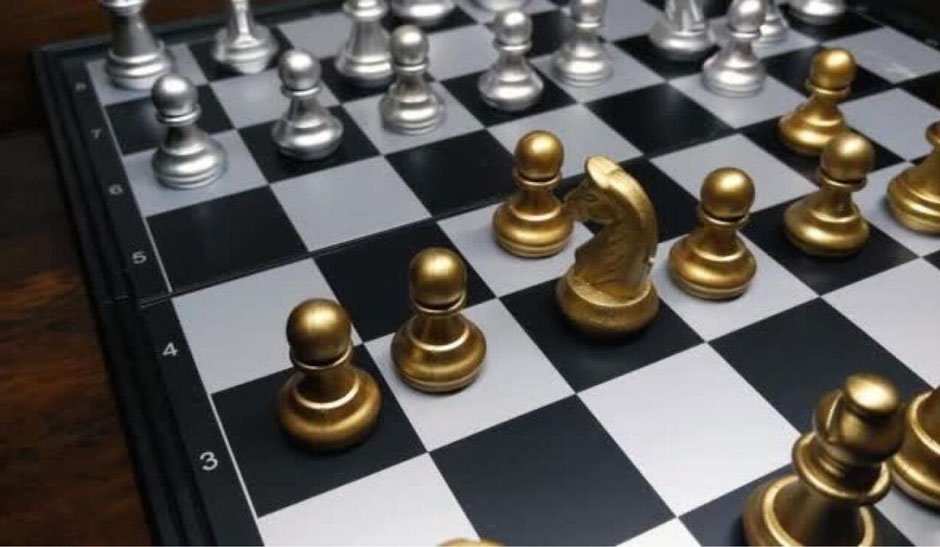The Power of Strategy Games in Intellectual Growth

Strategy games have captivated the minds of gamers for decades, providing a unique and immersive experience that challenges players to think critically, plan strategically, and adapt dynamically. These games, whether played on a computer, console, or tabletop, offer a wealth of benefits beyond mere entertainment. They provide a platform for intellectual growth, problem-solving skills, and strategic thinking. In this article, we explore the world of strategy games, their appeal, and the valuable life lessons they impart.
Strategy Games: An Enthralling Blend of Intellect and Creativity
Strategy games encompass a wide range of genres, from turn-based tactical games like “Civilization” and “XCOM” to real-time strategy titles like “StarCraft” and “Age of Empires.” They require players to analyze complex scenarios, make calculated decisions, and anticipate the consequences of their actions. These games are like mental chess matches, demanding not only strategic thinking but also a keen understanding of the game mechanics and the ability to exploit them to gain an advantage.
Enhancing Cognitive Abilities
Strategy games offer a multitude of cognitive benefits that extend far beyond the virtual world. They improve critical thinking skills by forcing players to analyze information, assess risks, and make optimal choices. In these games, players often encounter resource management challenges, where they must balance limited resources with the demands of their strategies. This nurtures skills such as prioritization, resource allocation, and long-term planning.
Additionally, strategy games enhance problem-solving abilities. Players face diverse obstacles and must devise innovative solutions to overcome them. These games teach players to think outside the box, encouraging creativity and originality in their approach. Whether it’s devising an intricate military campaign or managing a bustling city, strategy games foster the development of adaptive problem-solving skills that can be applied to real-life situations.
Strategic Thinking: Applying Lessons to Reality
One of the most remarkable aspects of strategy games is their ability to translate virtual experiences into real-world skills. The strategic thinking cultivated in these games can be transferred to various aspects of life, ranging from academic pursuits to professional endeavors. The ability to analyze complex situations, consider multiple options, and make informed decisions is invaluable in fields such as business, politics, and military strategy.

Moreover, strategy games instill a sense of patience and long-term thinking. Players often face setbacks and must learn from their mistakes, adapt their strategies, and persist until they achieve their goals. This resilience carries over into real life, empowering individuals to navigate challenges with determination and perseverance.
Collaboration and Competition: Fostering Social Bonds
Strategy games are not limited to solitary experiences. Many offer multiplayer modes that enable players to compete against or cooperate with others. Multiplayer strategy games provide a unique social platform, allowing players to engage in strategic battles with friends or forge alliances to overcome common adversaries. These experiences foster teamwork, communication, and negotiation skills, building stronger social connections and promoting healthy competition.
In a cooperative setting, players learn the art of delegation, coordination, and synergy, as they pool their collective strengths to achieve shared objectives. This collaborative environment mirrors real-life scenarios, such as team projects, where effective communication and cooperation are vital for success.
Ethics and Morality: Exploring Complex Choices
Strategy games often present players with moral dilemmas and ethical choices. These games force players to confront the consequences of their decisions, questioning their own values and beliefs. Players are challenged to consider the greater good, the costs of their actions, and the impact on virtual societies. This ethical dimension of strategy games encourages players to reflect on their own moral compass and engage in critical discussions.
Furthermore, strategy games can shed light on historical events and cultural dynamics. Games like “Crusader Kings” and “Total War” provide immersive experiences set in specific time periods, allowing players to gain insights into historical contexts and appreciate the complexities of human civilization. These games can serve as a gateway to learning and encourage players to explore real-world history with greater curiosity.
Conclusion
Strategy games offer an unparalleled combination of intellectual stimulation, creative expression, and social interaction. They sharpen cognitive skills, nurture problem-solving abilities, and develop strategic thinking that can be applied to various aspects of life. These games provide a captivating medium to explore moral dilemmas, historical contexts, and societal dynamics. Whether you’re a seasoned strategist or a newcomer to the genre, diving into the world of strategy games can unlock a realm of strategic brilliance and personal growth. So, grab your controller or gather your friends around a tabletop, and embark on an adventure that will test your wits and shape your strategic prowess.



